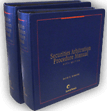Securities arbitration differs greatly from a typical civil court action. Recognizing these differences when presenting your case can be the difference between a monetary Award and having your case dismissed. Unlike court, where your target audience is a jury of laymen, unfamiliar with the law and your case, arbitration panels are typically made up of practicing or retired attorneys who have read all the pleadings in your case before ever seeing you. So how does an investor connect with and convince an arbitration panel to award damages? This article should provide a quick primer.
When we were children, we loved being told stories, especially fanciful flights of imagination. Adults are still enthralled by a good story teller, especially if the story is based on facts. Arbitrators are no different and, as a result, one should always keep a good story in mind when crafting a claim – called a Statement of Claim – and when presenting his case at the hearing: Tell a story that makes sense and that will convince three strangers to award you monetary damages. The arbitrators have already read your pleadings well in advance of the hearings, so your first impression is vitally important and it all starts with your Statement of Claim. When drafting a Statement of Claim, make sure to speak clearly and convincingly to an audience of three arbitrators, not what you want to hear or what you think will intimidate your adversary.
Writing a Statement of Claim – for Your Target Audience
Writing for the arbitrators means keeping it as simple as possible, but not too simple that the Claim just looks like that of a disgruntled customer who seeks to foist all responsibility for an investment’s outcome on the broker and his firm. From the very beginning – in what I call the Overview – summarize your entire case in a paragraph or two. Facts should be set forth in a clear, chronological narrative. Develop the themes you plan to present at the hearings, in your Opening Statement and that you hope to reiterate in your Summation.
In my decades-long experience, I have found the following five points to be helpful in drafting your Statements of Claim:
1. Overview – Provide a clear, concise explanation of your relationship with your broker and his/her firm, why you made the investment(s) in question, what documents, if any, you relied on, the response of the brokerage firm to your compliant, the amount of money you’re seeking and how you calculated those damages.
2. The Courage to Simplify – Do not include allegations that cannot be proven at the hearing. This is very important because unlike a jury, arbitrators are experienced and can see right through claims that are speculated and embellished.
3. Exhibits? If there is a clearly written expert analysis or “smoking guns” (e.g., correspondence admitting liability, regulatory sanctions for similar misconduct) attach them as exhibits to the Claim. Do not expect exhibits to be read by the arbitrators if there are too many of them or they are hard to read. Try to limit your exhibits to the most hard-hitting and easily understood, more nebulous exhibits are better presented at the hearings where you can provided explanations.
4. What do you Want? Money damages should be set forth in a certain, not approximate, amount. If the precise amount cannot be presented without the discovery of necessary documents from your adversary (e.g., commission runs), explain that you will need to amend your damage claim at that time.
5. Who to Name – Only name as Respondents the most important individuals or entities. By reducing to the minimum the number of Respondents, you encourage the arbitrators to focus more on the brokerage firm’s supervisory failures that permitted the broker’s alleged misconduct.
Following these five principles will give you a good foundation for preparing your narrative and focusing it for your target audience: the arbitration panel. However, the best way to ensure that your claim is prepared with the highest likelihood of success is to speak with an attorney who specializes in securities arbitration.


